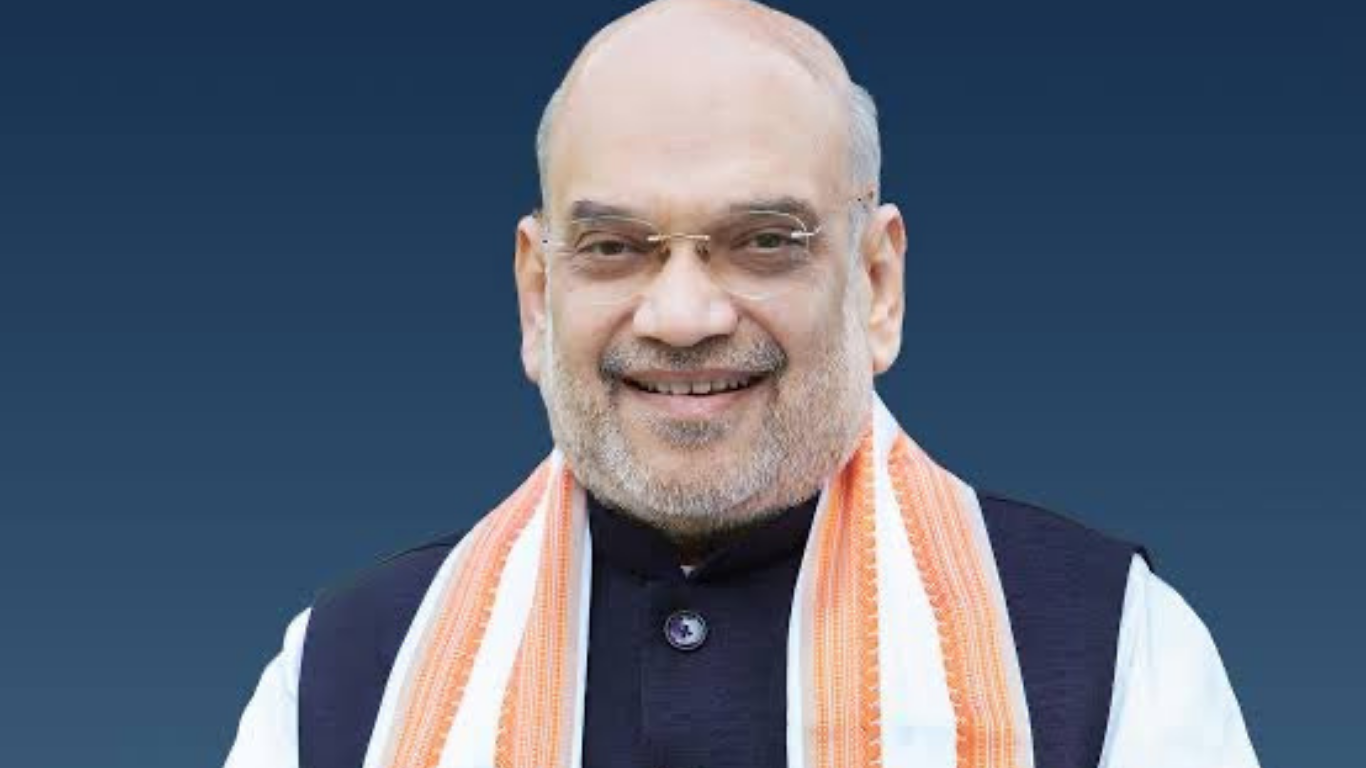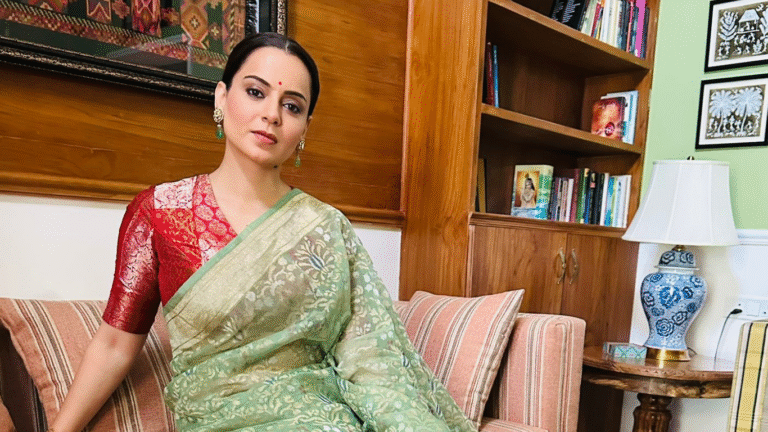
New Delhi, October 22, 2025 – Today marks a special day for one of India’s most influential political figures. Union Home Minister Amit Shah celebrates his 61st birthday, surrounded by warm wishes from leaders across the country. Prime Minister Narendra Modi led the tributes, calling Shah a “hardworking leader” whose efforts have strengthened the Bharatiya Janata Party (BJP) and contributed immensely to India’s progress. Modi shared his greetings on social media, highlighting Shah’s role in building a stronger nation. Bihar Chief Minister Nitish Kumar echoed similar sentiments, praising Shah’s dedication and wishing him good health. Even from Tamil Nadu, AIADMK leader Edappadi K. Palaniswami extended his regards, noting Shah’s leadership in national security and development.
On X (formerly Twitter), the platform buzzed with birthday messages. Users shared photos and videos, calling him the “Chanakya of Indian politics” and “Mota Bhai” – a term of endearment reflecting his stature. One post from a user in Gujarat appreciated sanitation workers in Gandhinagar on this occasion, linking it to Shah’s roots in the state. Another fan club celebrated with millet-themed wishes, adding a light-hearted touch. These online tributes show how Shah’s journey resonates with people from all walks of life.
But beyond the celebrations, Amit Shah’s story is one of grit, strategy, and unwavering commitment to his beliefs. Often compared to the ancient strategist Chanakya for his sharp political mind, Shah has risen from humble beginnings to become a key architect of modern Indian politics. His path hasn’t been easy – filled with struggles, legal battles, and high-stakes decisions. As we mark this milestone, let’s take a closer look at his life, from his early days to his current role shaping India’s future.
Roots in Gujarat: A Simple Start with Big Dreams
Amitbhai Anilchandra Shah was born on October 22, 1964, in Mumbai (then Bombay), into a Gujarati Hindu Bania family. His great-grandfather was once the Nagarseth, or chief, of the small state of Mansa in Gujarat, giving the family a touch of historical prestige. But Shah’s father, Anil Chandra Shah, was a practical businessman who ran a PVC pipe factory in Mansa. Young Amit grew up in a middle-class setting, moving between Mehsana and Ahmedabad.
Education was straightforward for him. He attended a local school in Mehsana before heading to CU Shah Science College in Ahmedabad, where he earned a Bachelor of Science degree in biochemistry. After college, Shah didn’t chase fancy jobs. Instead, he jumped into the family business, working as a stockbroker and in cooperative banks. It was a hands-on life, teaching him the value of hard work and community ties.
What really shaped Shah was his early involvement with the Rashtriya Swayamsevak Sangh (RSS), a volunteer group focused on Hindu values and national service. As a kid, he attended neighborhood shakhas, or branches, where he learned discipline and patriotism. By his college years, he was a full-fledged RSS Swayamsevak. This is where he first crossed paths with Narendra Modi in 1982. Modi, then an RSS pracharak overseeing youth activities, became a mentor. Their bond would later define Indian politics.
Shah’s entry into active politics came in 1983 when he joined the Akhil Bharatiya Vidyarthi Parishad (ABVP), the RSS’s student wing. Four years later, in 1987, he became a member of the BJP. He started small, working in the party’s youth wing, the Bharatiya Janata Yuva Morcha (BJYM). Positions like ward secretary and state secretary followed, building his reputation as an organizer. His big break came in 1991, managing L.K. Advani’s election campaign in Gandhinagar – a role that showcased his knack for strategy.
Building Power in Gujarat: Partnerships and Early Wins
The 1990s were a turning point. When the BJP formed its first government in Gujarat in 1995 under Keshubhai Patel, Shah and Modi teamed up to challenge the Congress party’s hold on rural areas and cooperatives. They recruited local leaders who had lost village elections, creating a network of 8,000 influencers. This grassroots approach paid off big time.
In 1999, Shah took charge of the Ahmedabad District Cooperative Bank, turning it from losses to profits in just a year. He made sure BJP loyalists held key spots, strengthening the party’s economic base. He also dabbled in sports, leading the Gujarat State Chess Association and later the Gujarat Cricket Association.
Politically, Shah won his first election in 1997, becoming an MLA from Sarkhej in a by-election. He held the seat through 1998, 2002, and 2007, winning by huge margins each time. When Modi became Chief Minister in 2001, Shah was his right-hand man. As the youngest minister, he handled 12 portfolios, including home, law, and transport. He pushed laws like the Gujarat Control of Organised Crime Act and the Freedom of Religion Bill, aimed at curbing forced conversions.
These years were about building alliances and outsmarting opponents. Shah’s work in cooperatives and rural networks helped the BJP dominate Gujarat. But success brought scrutiny.
The Tough Times: Legal Battles and Exile
No story of triumph is without hurdles, and Shah’s journey has had its share of dark chapters. In 2010, he faced serious accusations in the Sohrabuddin Sheikh fake encounter case. The CBI claimed Shah, as Gujarat’s home minister, orchestrated the killings of Sheikh, his wife, and an associate in 2005. Phone records and tapes linked him to police officers involved. Arrested in July 2010, Shah spent time in jail before getting bail. But the Supreme Court barred him from entering Gujarat, forcing him into exile in Delhi for two years.
This was a low point. Living in Gujarat Bhavan, away from home and politics, Shah could have faded away. Instead, he stayed connected, reading scriptures like the Bhagavata Purana for strength. He denied the charges, calling them politically motivated. In 2014, a court discharged him, citing lack of evidence.
Then came the 2013 “Snoopgate” scandal, where tapes suggested illegal surveillance on a woman and an IAS officer. Shah dismissed it as opposition smear tactics. The woman involved said it was for her safety. These controversies painted him as a tough operator, but they also tested his resolve.
Despite the setbacks, Shah bounced back. In 2012, still in exile, he won the Naranpura assembly seat. His struggles only fueled his drive, turning personal challenges into political fuel.
National Stage: From BJP President to Home Minister
Shah’s big leap came in 2013 when he was put in charge of Uttar Pradesh for the 2014 Lok Sabha elections. UP was a SP, BSP and Congress stronghold, but Shah flipped the script. Using booth-level workers, video campaigns, and alliances with local castes, he led the BJP to 73 out of 80 seats. This victory made Modi prime minister and Shah BJP president in July 2014.
As party chief until 2020, Shah transformed the BJP. He launched a massive membership drive, hitting 100 million members by 2015 – the world’s largest party. Under him, the BJP won states like Maharashtra, Haryana, Assam, and Uttar Pradesh in 2017 (a whopping 312 seats there). Even in tough spots like Tripura, he engineered wins.
In 2019, as home minister in Modi’s second term, Shah made bold moves. He scrapped Article 370, ending Jammu and Kashmir’s special status and splitting it into two union territories. The Citizenship Amendment Act (CAA) followed, offering citizenship to persecuted minorities from neighboring countries. These decisions sparked debates and protests, but Shah stood firm, arguing they strengthened national unity.
He also pushed for a National Register of Citizens to tackle illegal immigration. In 2022, he introduced laws expanding police powers for evidence. His focus on internal security included cracking down on naxalism and promoting Hindi as a unifying language.
The Chanakya Label: Strategy and Vision
People often call Shah the “modern-day Chanakya” – after the ancient advisor who built empires through clever tactics. It’s fitting. Like Chanakya, Shah uses intellect over force. He keeps a portrait of Chanakya at home and draws from his teachings on governance and strategy.
His political journey mirrors Chanakya’s: rising from the sidelines to shape kings (or in this case, prime ministers). Shah’s booth management, alliance-building, and data-driven campaigns have won elections that seemed impossible. In 2019, he set a “Mission 300” target for Lok Sabha seats – the BJP got 303. He traveled to 312 constituencies, holding countless meetings.
But the label also draws criticism. Some see his methods as divisive, like his 2018 comment calling Bangladeshi immigrants “termites.” In 2024, Canada accused him of targeting Sikh diaspora, which he denied. Yet, supporters argue his toughness is what India needs for security.
Recent Chapters: Longest-Serving Home Minister and Beyond
In August 2025, Shah became India’s longest-serving home minister, surpassing previous records. This year, he’s been busy with Bihar elections, where he’s accused of pressuring opponents – claims that highlight his negotiating skills. In Manipur, a former CM credited him for restoring peace amid ethnic tensions.
In Ladakh, Shah advised patience in talks for regional demands, promising positive outcomes. He’s also pushed anti-drug initiatives, aiming for a drug-free India through policy changes.
In the 2024 elections, Shah retained Gandhinagar with over a million votes – 76.5% share. As cooperation minister since 2021, he’s worked on rural economies.
Personal health scares, like COVID-19 in 2020 and a minor surgery in 2019, haven’t slowed him. He lives in New Delhi with wife Sonal (married 1987) and son Jay, who’s involved in cricket administration. Shah has six sisters and keeps family close.
A Legacy in the Making
Amit Shah’s 61st birthday isn’t just about cake and wishes – it’s a moment to reflect on a man who’s reshaped India’s political landscape. From a young RSS volunteer to the home minister, his story is about overcoming odds, smart planning, and loyalty to his vision of a strong India.
Critics may question his methods, but his successes – from Gujarat’s dominance to national reforms – speak volumes. As one X user put it, “Happy Birthday to the man who plays politics like chess.” Whether you see him as a hero or a hardliner, Shah’s impact is undeniable



